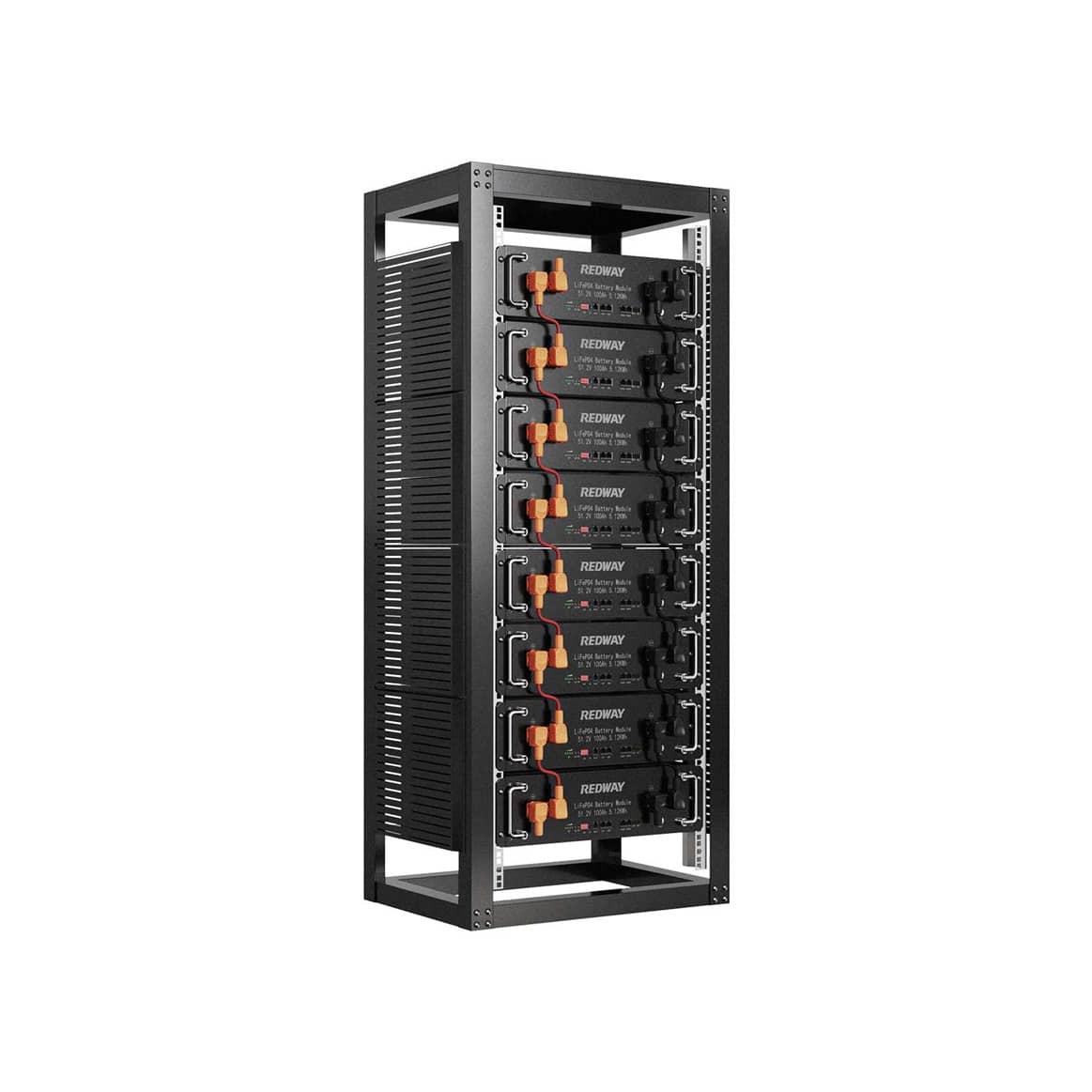Discover why server rack batteries are shifting towards lithium-ion technology. Lithium-ion batteries offer higher energy density, allowing them to store more energy in a compact size. This makes them ideal for server racks with limited space. With a longer lifespan, faster charging capabilities, and improved efficiency, lithium-ion batteries provide reliable backup power for data centers. Upgrade to lithium-ion technology for reliable and efficient server rack battery solutions.
-
Higher Energy Density:
- Lithium-ion batteries exhibit higher energy density compared to lead-acid batteries.
- This means that they can store more energy in a smaller size, making them ideal for server racks with limited space.
- The compact form factor of lithium-ion batteries allows for easier integration into server racks, ensuring efficient use of available space.
-
Improved Performance and Reliability:
- Lithium-ion batteries offer superior performance and reliability compared to lead-acid batteries.
- They have a longer lifespan, allowing for extended use and reduced replacement frequency.
- Lithium-ion batteries also have faster charging capabilities, ensuring quick recovery and minimal downtime in case of power outages.
-
Enhanced Efficiency:
- Lithium-ion batteries are known for their high energy efficiency.
- They can efficiently convert stored energy into usable power, minimizing energy loss and maximizing the overall efficiency of the system.
- This efficiency translates into cost savings and reduced environmental impact.
The Need for Reliable Backup Power in Data Centers
Discover the importance of reliable backup power in data centers. A momentary loss of power can lead to system downtime, loss of in-process information, and financial and safety risks. Having reliable backup power is essential to prevent these issues and ensure uninterrupted operations in data centers. Explore reliable backup power solutions to safeguard your data center’s productivity and safety.
-
Mitigating System Downtime and Loss of Information:
- A momentary loss of power can result in system downtime, leading to a halt in operations and productivity.
- Data centers handle vast amounts of critical information, and a power outage can cause the loss of in-process data, impacting business continuity.
- Reliable backup power solutions are essential to prevent system downtime and mitigate the risk of losing valuable information.
-
Avoiding Financial Losses and Safety Risks:
- Power outages in data centers can result in significant financial losses due to disrupted operations and potential damage to equipment.
- Additionally, power outages can pose safety risks, such as data corruption or compromised security systems.
- Having reliable backup power ensures the continuous operation of data centers, minimizing financial losses and maintaining a safe working environment.
-
Safeguarding Productivity and Operational Efficiency:
- Data centers play a critical role in various industries, supporting essential operations and services.
- Reliable backup power solutions enable data centers to maintain productivity and operational efficiency, even during power outages.
- With uninterrupted power supply, data centers can continue delivering services, processing transactions, and ensuring seamless connectivity.
Traditional Lead-Acid Batteries vs. Lithium-Ion Batteries
Discover the differences between traditional lead-acid batteries and lithium-ion batteries. While lead-acid batteries are known for their reliability, lithium-ion batteries offer a longer lifespan, higher energy efficiency, faster charging capabilities, and lower maintenance requirements. Upgrade to lithium-ion batteries for improved performance and efficiency in various applications.
-
Longer Lifespan:
- Lithium-ion batteries have a longer lifespan compared to lead-acid batteries.
- Lead-acid batteries typically require replacement at least once during the life of a UPS (Uninterruptible Power Supply) system, while lithium-ion batteries can last 15-20 years before reaching their end-of-life.
- The extended lifespan of lithium-ion batteries reduces the need for frequent battery replacements, resulting in cost savings and improved reliability.
-
Higher Energy Efficiency:
- Lithium-ion batteries offer higher energy efficiency compared to lead-acid batteries.
- Lithium-ion batteries typically have an efficiency of at least 95%, while lead-acid batteries offer efficiencies around 80-85%.
- The higher energy efficiency of lithium-ion batteries translates into better utilization of stored energy and improved overall performance.
-
Faster Charging and Reduced Maintenance:
- Lithium-ion batteries have faster charging capabilities compared to lead-acid batteries.
- The faster charging time allows for more usage time and reduces the downtime associated with charging.
- Additionally, lithium-ion batteries require less maintenance compared to lead-acid batteries, resulting in reduced maintenance costs and efforts.
Advantages of Lithium-Ion Batteries for Server Racks
Lithium-ion batteries offer higher energy density, longer lifespan, faster recharge times, and lower self-discharge rates compared to traditional battery technologies. With their compact size and high-performance capabilities, lithium-ion batteries are the ideal choice for server racks with limited space and the need for reliable backup power.
-
Higher Energy Density:
- Lithium-ion batteries have a higher energy density compared to traditional battery technologies.
- This means that they can store more energy in a smaller size, allowing for efficient use of space in server racks with limited room for battery storage.
- The higher energy density of lithium-ion batteries ensures that server racks can have sufficient backup power without compromising valuable space.
-
Longer Lifespan:
- Lithium-ion batteries have a longer lifespan compared to traditional batteries.
- This extended lifespan reduces the need for frequent battery replacements, resulting in cost savings and improved reliability.
- Server racks equipped with lithium-ion batteries can rely on their long-lasting performance for uninterrupted operations.
-
Faster Recharge Times and Lower Self-Discharge Rates:
- Lithium-ion batteries offer faster recharge times compared to traditional batteries.
- This means that server racks can quickly recover and resume normal operations after power outages.
- Additionally, lithium-ion batteries have lower self-discharge rates, ensuring that stored energy is preserved for longer periods without significant loss.
Cost Comparison: Is it worth the investment?
When it comes to choosing between traditional lead-acid batteries and lithium-ion batteries for server racks, cost plays a significant role in the decision-making process. While upfront costs may show that lead-acid batteries are cheaper, the long-term benefits of investing in lithium-ion batteries often outweigh the initial expense.
Lithium-ion batteries have a longer lifespan compared to lead-acid batteries, meaning they require less frequent replacements, reducing maintenance costs over time. Additionally, lithium-ion batteries have higher energy density and efficiency, resulting in lower operating costs due to improved performance and reliability.
Although the initial investment in lithium-ion technology may be higher, the overall cost savings associated with reduced maintenance and increased efficiency make it a worthwhile investment for companies looking to optimize their data center operations. In today’s fast-paced digital landscape, where downtime is costly and unpredictable, investing in reliable backup power solutions like lithium-ion batteries can provide peace of mind and long-term financial benefits.
Case Studies of Companies Using Lithium-Ion Batteries in their Server Racks
Let’s take a look at some real-world examples of companies that have made the switch to using lithium-ion batteries in their server racks.
Company A, a large tech firm based in Silicon Valley, installed lithium-ion batteries in their data centers last year. They reported a significant increase in energy efficiency and longer backup power duration during outages.
Company B, an e-commerce giant with multiple server locations worldwide, also adopted lithium-ion batteries for their server racks. They noted faster charging times and reduced maintenance costs compared to traditional lead-acid batteries.
These case studies highlight the tangible benefits that come with integrating lithium-ion technology into data center infrastructure. It’s clear that more businesses are recognizing the advantages and making the shift towards this advanced power solution.
Potential Impact on the Data Center Industry
As the data center industry continues to evolve, the shift towards lithium-ion batteries for server racks is poised to make a significant impact. With their longer lifespan and higher energy density, these batteries offer enhanced reliability and efficiency compared to traditional lead-acid options.
Implementing lithium-ion batteries can improve not only backup power capabilities but also overall operational performance in data centers. This technology allows for more compact and lightweight solutions, optimizing valuable space within facilities while reducing maintenance requirements.
Moreover, the scalability of lithium-ion systems provides flexibility for growing data needs without compromising on power reliability. Companies embracing this change are positioning themselves at the forefront of innovation within the industry, setting new standards for sustainability and cost-effectiveness.
The potential impact of widespread adoption of lithium-ion batteries in server racks extends beyond individual businesses – it has the power to drive a fundamental transformation in how data centers operate and adapt to future demands.
Conclusion: The Future of Server Rack Batteries
As data centers continue to evolve and demand higher levels of reliability and efficiency, the shift towards lithium-ion batteries for server racks is becoming more prevalent. With their superior performance, longer lifespan, faster recharge times, and smaller footprint compared to traditional lead-acid batteries, it’s clear why many companies are making the switch.
The future of server rack batteries lies in embracing this innovative technology to meet the growing power needs of data centers while also minimizing downtime and maintenance costs. As more businesses recognize the benefits that lithium-ion batteries bring to their operations, we can expect to see a widespread adoption across the industry.
By staying ahead of the curve and investing in cutting-edge solutions like lithium-ion batteries for server racks, data center operators can ensure seamless operations even during power outages or fluctuations. The future is bright for those who embrace change and leverage technology to drive efficiency and reliability in their infrastructure.

As more data centers make the switch to lithium-ion batteries, we can expect to see even more advancements in this technology. So, if you’re looking to upgrade your server racks, don’t hesitate to make the switch to lithium-ion batteries. Your data center and your wallet will thank you.



